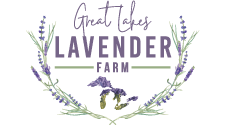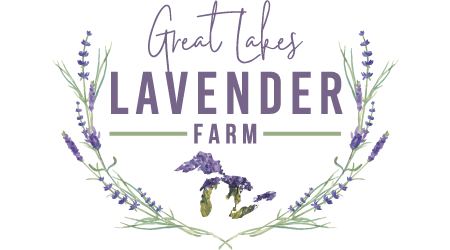Introduction: The Enchanting World of Christkindl Markt and Lavender
Christkindl Markt, the enchanting German Christmas market, is synonymous with holiday cheer, twinkling lights, and the aroma of mulled wine wafting through the chilly winter air. Dating back centuries, these markets offer a sensory experience steeped in tradition. However, among the gingerbread houses, hand-carved toys, and aromatic spices, a unique addition is finding its way into these festive celebrations: lavender.
Lavender’s connection to Christmas markets may seem unconventional, but the inclusion of this aromatic herb is not just a fleeting trend. It represents a blend of history, cultural significance, and modern appeal that enhances the Christkindl Markt experience. In this article, we explore how lavender’s historical and symbolic relevance intertwines with the magic of German Christmas markets, creating a harmonious blend that captivates visitors worldwide.
The Origins of Christkindl Markt: A Celebration of Tradition
Christkindl Markt, or “Christ Child Market,” emerged in the late Middle Ages, with its roots tracing back to early 16th-century Germany. Markets like those in Nuremberg, Dresden, and Munich began as simple, open-air gatherings where artisans and merchants offered handmade crafts, festive decorations, and seasonal foods. These markets served as a communal space for townspeople to prepare for Christmas, with vendors displaying a variety of goods that became synonymous with the holiday season.
The traditional Christkindl Markt reflects the essence of German culture and craftsmanship. Stalls brimming with nutcrackers, wooden ornaments, and hand-knitted scarves represent the time-honored skills passed down through generations. Yet, as the markets have expanded in popularity and influence, they’ve evolved to include contemporary elements—new products that complement the classic offerings while enhancing the overall holiday experience. Lavender, in particular, has emerged as an unexpected yet fitting addition.
Lavender’s Historical Presence in German Culture
Lavender, known scientifically as Lavandula, has a rich history dating back thousands of years. Though originally native to the Mediterranean, lavender found its way north through trade routes and became a staple in European herb gardens. In Germany, lavender was not only appreciated for its aromatic qualities but also valued for its medicinal properties. Monasteries and apothecaries throughout medieval Germany cultivated lavender in their herb gardens, using it to produce tinctures, teas, and essential oils that treated everything from insomnia to digestive issues.
The herb’s historical role in German culture extends beyond its medicinal uses. Lavender symbolized purity, calm, and protection, making it a revered plant in both spiritual and domestic spheres. In German households, lavender was often included in potpourris and hung in doorways to ward off evil spirits, a tradition that has echoes in today’s holiday décor. This deep-rooted cultural connection provides the foundation for lavender’s modern presence in Christkindl Markt.
Why Lavender? The Correlation Between Lavender and Christmas Markets
At first glance, lavender—a plant most often associated with warm, sunny fields in Provence or Mediterranean gardens—may seem out of place in a wintry, snowy Christmas market. However, lavender’s inclusion in Christkindl Markt is far from incongruent. Its historical significance in German herb gardens and its calming, aromatic properties make it an ideal addition to the festive atmosphere. Here’s why:
1. Aromatic Ambiance:
Christkindl Markt is an immersive sensory experience where sights, sounds, and smells transport visitors to a world of holiday enchantment. Traditionally, the markets are filled with the scent of pine, mulled wine, roasted nuts, and spiced cookies. The addition of lavender-infused products brings a fresh, aromatic layer to this olfactory delight. Lavender’s calming scent blends harmoniously with the festive aromas, creating a tranquil oasis amidst the hustle and bustle of holiday crowds.
2. Lavender as a Symbol of Calm Amidst Holiday Chaos:
The holiday season, though joyous, can be overwhelming. Lavender is renowned for its calming properties, often used to reduce stress and promote relaxation. Christkindl Markt vendors offer lavender sachets, wreaths, and essential oils designed to bring a sense of calm and well-being to market-goers. This botanical respite provides visitors a moment of tranquility, aligning with the spirit of peace and reflection that Christmas embodies.
3. Lavender in Holiday Décor and Gifts:
Lavender’s versatility extends to its decorative appeal. Many vendors at Christkindl Markt craft lavender wreaths and garlands that combine traditional holiday greenery with the herb’s deep purple hues, offering a sophisticated twist on classic decorations. These wreaths not only beautify homes but also release a soothing fragrance, providing a dual-purpose appeal that makes them a popular choice among market visitors.
Moreover, lavender-infused products like soaps, candles, and teas make for thoughtful, artisanal gifts. The herb’s symbolic meanings—love, peace, and protection—resonate with the holiday season, making lavender-infused items cherished presents that align with the spirit of giving.
The Evolution of Lavender’s Role in Christkindl Markt
While lavender has deep roots in Germany’s cultural history, its integration into Christkindl Markt is a relatively modern phenomenon. Over the past two decades, as interest in wellness and artisanal products has grown, lavender has gained prominence at these markets. Small-scale producers and herbalists recognized the opportunity to reintroduce lavender as a winter-friendly herb, highlighting its historic ties to German gardens while appealing to contemporary tastes for natural, aromatic products.
Lavender-Infused Mulled Wine and Culinary Delights
Lavender’s culinary versatility has also contributed to its rise in popularity at Christkindl Markt. Vendors have experimented with traditional market foods and beverages, incorporating lavender as a unique twist. Mulled wine, or Glühwein, often served steaming hot at Christkindl Markt, is now available in lavender-infused varieties. The floral notes of lavender blend harmoniously with the spices of cinnamon, cloves, and star anise, adding a refreshing and aromatic depth to the classic holiday drink.
Lavender-infused honey, chocolates, and baked goods such as Lebkuchen (traditional German gingerbread) have become festive staples at the markets, providing visitors with a taste of something both novel and nostalgic. These culinary innovations demonstrate how lavender seamlessly integrates into the sensory tapestry of Christkindl Markt, enhancing traditional offerings with a touch of botanical elegance.
The Lavender Craft: Artisans at Christkindl Markt
Christkindl Markt celebrates craftsmanship, and lavender artisans have become a vital part of this tradition. Lavender farmers and small-scale producers bring dried lavender bundles, sachets, and essential oils to the markets, often sharing the stories of their farms and the history of the herb. This personalized touch not only fosters a connection between vendors and visitors but also educates the public on lavender’s historical and contemporary uses.
Some vendors craft intricate lavender wreaths and ornaments, blending the herb with seasonal evergreens like fir and holly. These handcrafted pieces embody the Christkindl Markt spirit—showcasing artisanal skill and honoring the past while catering to modern tastes. Workshops and demonstrations on how to make lavender candles or sachets also offer visitors a hands-on experience, deepening their engagement with the herb and its historical roots.
Lavender and the Legacy of German Herb Gardens
German monasteries played a crucial role in the development of herbal medicine during the Middle Ages, cultivating lavender alongside other medicinal herbs. These gardens became centers of knowledge, where monks used lavender to produce remedies for anxiety, insomnia, and respiratory issues. The herb’s presence in German monastic gardens was not only practical but also spiritual; lavender was believed to symbolize purity and divine calm, making it a fitting companion in places dedicated to reflection and healing.
Today, Christkindl Markt continues this legacy by inviting lavender vendors who celebrate the herb’s historical significance and its modern applications. The market stalls dedicated to lavender products serve as a reminder of Germany’s deep-rooted botanical traditions, bridging the gap between past and present.
The Future of Lavender at Christkindl Markt
As Christkindl Markt continues to evolve, the presence of lavender is likely to grow. The rise of wellness culture and the increasing popularity of natural, handmade products have created a demand for lavender-infused goods that aligns perfectly with the artisanal ethos of these markets. Lavender’s versatility allows it to adapt to various market trends, from culinary innovations to wellness products and eco-friendly packaging.
Moreover, lavender’s symbolic resonance with peace, protection, and calm makes it an enduring element that complements the festive atmosphere of Christkindl Markt. As markets expand globally—reaching cities like Chicago, Toronto, and Strasbourg—lavender’s inclusion will continue to connect visitors to both the historic and cultural roots of these enchanting winter events.
Experience Lavender at Christkindl Markt: Visit Great Lakes Lavender Farm
To experience the enchanting blend of lavender and holiday magic firsthand, visit Great Lakes Lavender Farm at Christkindl Markt at Downtown Market Grand Rapids from November through December. Our exclusive Christkindl-themed lavender products are crafted to bring the essence of this cherished holiday tradition into your home. From lavender-infused wreaths and sachets to unique culinary delights, each item celebrates the timeless beauty and aroma of lavender in the spirit of Christmas.
Conclusion: Lavender’s Blossoming Role in the Christkindl Markt Tradition
Christkindl Markt is a celebration of tradition, community, and the magic of the holiday season. Lavender, with its rich history, calming properties, and versatile appeal, has become an integral part of this experience. Its presence not only enhances the sensory delights of the market but also connects visitors to the deep-rooted herb gardens of Germany’s past. As we wander through the twinkling stalls, savoring lavender-scented mulled wine and admiring hand-crafted wreaths, we are reminded of the









